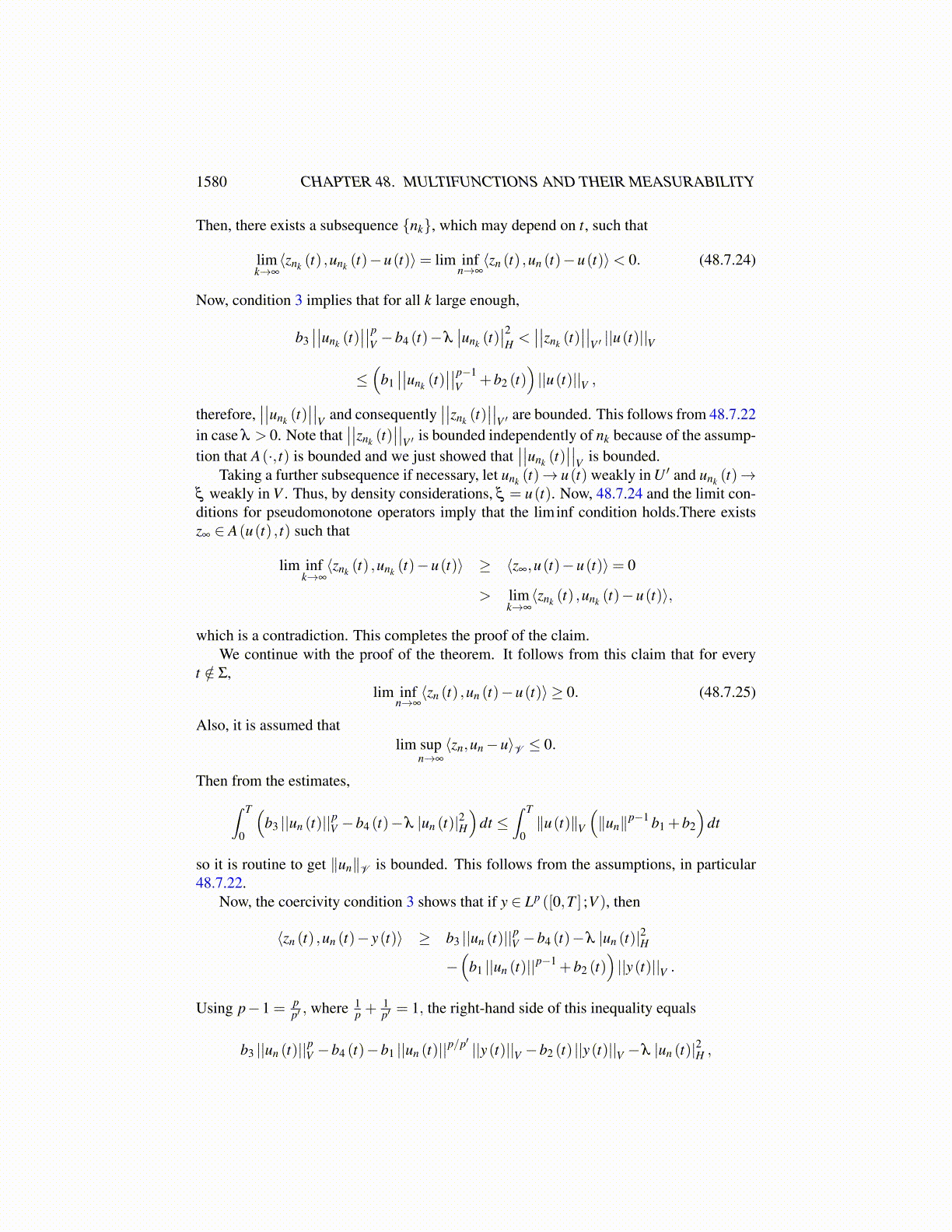
1580 CHAPTER 48. MULTIFUNCTIONS AND THEIR MEASURABILITY
Growth and coercivity
The next three conditions on the operator A are similar to the conditions proposed byBian and Webb, [18] See also Berkovitz and Mustonen [17] which seems to be the paperwhere these ideas originated. These specific and reasonable conditions, together with afourth one we add below, allow us to prove an appropriate limit condition that is based onthe assumption that u→ A(u, t) is a set-valued, bounded and pseudomonotone map fromV to P (V ′) and t→ A(u, t) has a measurable selection.
Our aim is to provide reasonable conditions under which an assumption of pseudo-monotonicity on u→A(u, t) transfers to a useable limit condition for the operator  definedon V = Lp ([0,T ] ;V ).
It is obvious that Âu is convex because this is true of A(u, t). It is also closed. Tosee this, suppose zn ∈ Â(u). Then zn (t) ∈ A(u(t) , t) for a.e.t. Taking the union of theexceptional sets, we can assume this inclusion holds off a single set of measure zero forall n. If you have zn → w strongly in V ′, then a subsequence converges pointwise a.e.Therefore, by upper semicontinuity of the pointwise operator u→ A(u, t) , it follows thatw(t) ∈ A(u(t) , t) for a.e. t. Thus Âu is convex and strongly closed.
We assume the following conditions on A.
1. A(·, t) : V →P (V ′) is pseudomonotone and bounded: A(u, t) is a closed convex setfor each t, u→ A(u, t) is bounded, and if
lim supn→∞
⟨A(un, t) ,un−u⟩ ≤ 0
then for any v ∈V,
lim infn→∞⟨A(un, t) ,un− v⟩ ≥ ⟨z(v) ,u− v⟩ some z(v) ∈ A(u, t)
2. A(·, t) satisfies the estimates: There exists b1 ≥ 0 and b2 ≥ 0, such that
||z||V ′ ≤ b1 ||u||p−1V +b2 (t) , (48.7.20)
for all z ∈ A(u, t) , b2 (·) ∈ Lp′ ([0,T ]).
3. There exist a positive constant b3 and a nonnegative function b4 that is B ([0,T ])measurable and also b4 (·) ∈ L1 ([0,T ]), such that
infz∈A(u,t)
⟨z,u⟩ ≥ b3 ||u||pV −b4 (t)−λ |u|2H . (48.7.21)
4. The operators t→ A(u(t) , t) are measurable in the sense that
t→ A(u(t) , t)
is a measurable multifunction with respect to F where F will be the σ algebra ofLebesgue measurable sets whenever t→ u(t) is in Vp.